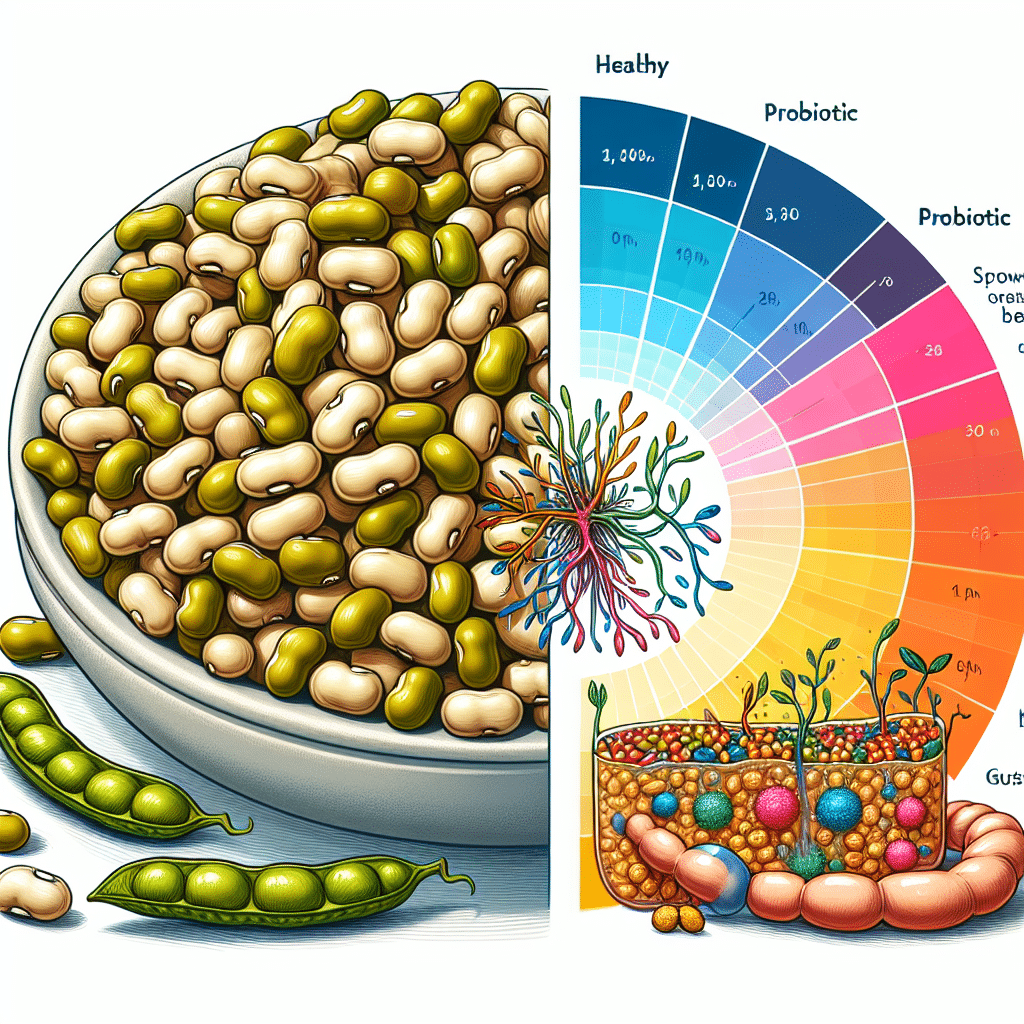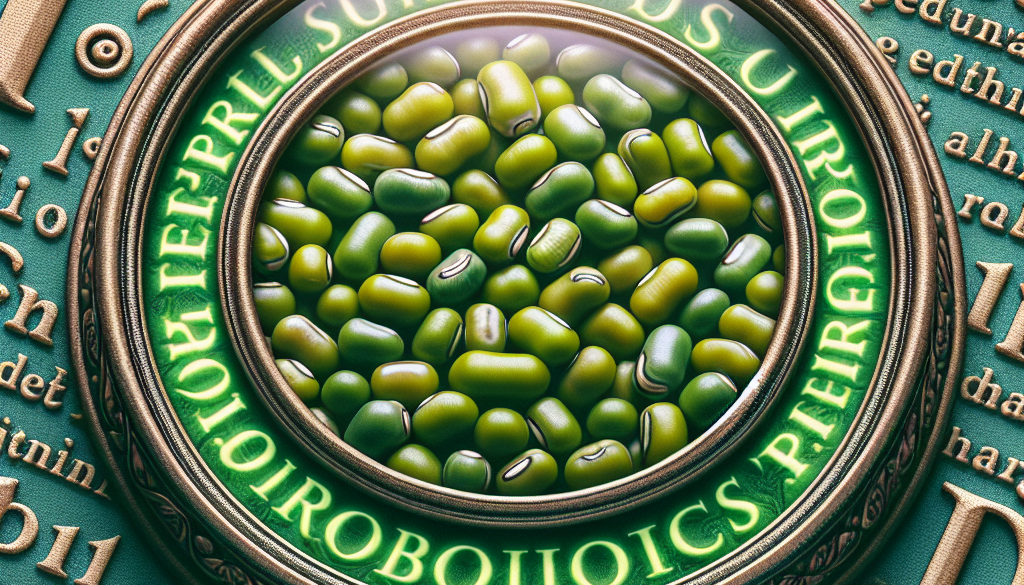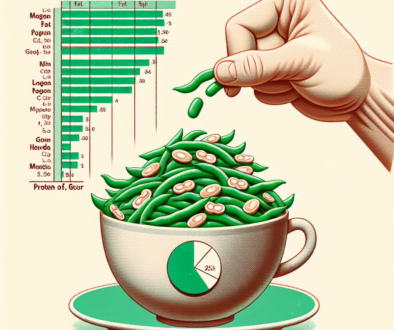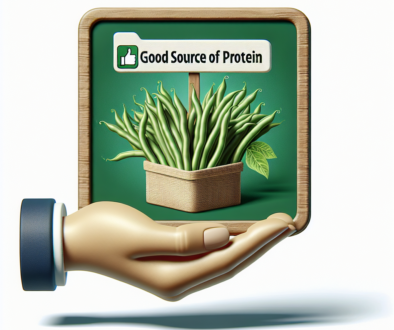Are Mung Beans A Probiotic?
-
Table of Contents
- Mung Beans and Probiotics: Unveiling the Truth
- Understanding Probiotics
- The Nutritional Profile of Mung Beans
- Are Mung Beans A Probiotic?
- Fermentation of Mung Beans
- Health Benefits of Mung Beans
- Probiotic Potential in Fermented Mung Bean Products
- Case Studies and Research
- Conclusion: Mung Beans and Probiotic Benefits
- Discover ETprotein’s Mung Bean Protein Products
Mung Beans and Probiotics: Unveiling the Truth

Probiotics have become a buzzword in the health and wellness industry, with a growing body of research highlighting their benefits for gut health, immunity, and beyond. As consumers increasingly seek out natural sources of these beneficial bacteria, the question arises: are mung beans a probiotic? This article delves into the nature of probiotics, the health benefits of mung beans, and the relationship between the two.
Understanding Probiotics
Probiotics are live microorganisms that, when administered in adequate amounts, confer a health benefit on the host. They are primarily found in fermented foods like yogurt, kefir, sauerkraut, and kimchi, or can be taken as dietary supplements. The most common types of probiotics are bacteria from the Lactobacillus and Bifidobacterium genera, as well as certain types of yeast, such as Saccharomyces boulardii.
The Nutritional Profile of Mung Beans
Mung beans are a type of small, green legume in the same plant family as peas and lentils. They are a staple in many diets around the world and are praised for their health benefits. Mung beans are rich in vitamins and minerals, protein, and dietary fiber. They also contain antioxidants and phytonutrients that may contribute to improved health outcomes.
Are Mung Beans A Probiotic?
While mung beans themselves are not a probiotic, they can become a source of probiotics through fermentation. Fermented mung beans can host beneficial bacteria that are similar to those found in other probiotic-rich foods. However, the probiotic content of fermented mung beans can vary greatly depending on the fermentation process, time, and conditions.
Fermentation of Mung Beans
Fermentation is a process that involves the breakdown of carbohydrates by bacteria and yeast. Not only does this process preserve foods, but it also can enhance the nutritional value and digestibility of foods, and create beneficial enzymes, B-vitamins, omega-3 fatty acids, and various strains of probiotics.
Mung beans can be fermented to produce foods like dosa and idli, popular in Indian cuisine, or natto, a traditional Japanese dish. These fermented mung bean products can contain probiotics, but it’s important to note that not all fermented foods will have probiotic benefits. The presence of live cultures depends on the specific strains used in fermentation and whether conditions are suitable for their survival.
Health Benefits of Mung Beans
While mung beans may not be a probiotic themselves, they offer a range of health benefits:
- Rich in Protein: Mung beans are a great source of plant-based protein, which is essential for muscle repair and growth.
- High in Fiber: The dietary fiber in mung beans can help improve digestive health and regularity.
- Antioxidant Properties: Mung beans contain antioxidants that may reduce the risk of chronic diseases by neutralizing harmful free radicals.
- Blood Sugar Regulation: Their low glycemic index and high fiber content can help in managing blood sugar levels.
- Heart Health: Mung beans have been linked to lower blood pressure and reduced risk of heart disease.
Probiotic Potential in Fermented Mung Bean Products
Research into the probiotic potential of fermented mung bean products is ongoing. Some studies have found that certain strains of beneficial bacteria can thrive in fermented mung bean environments, potentially offering probiotic benefits. However, more research is needed to fully understand the impact of these products on gut health and their probiotic content.
Case Studies and Research
Several studies have investigated the fermentation of mung beans and their potential as a probiotic source. For example, research published in the “Journal of Functional Foods” has shown that mung bean fermentation can increase the bioavailability of certain nutrients and introduce beneficial bacteria. Another study in the “International Journal of Food Sciences and Nutrition” found that fermented mung bean products could exhibit probiotic properties, depending on the bacterial strains used.
Conclusion: Mung Beans and Probiotic Benefits
In conclusion, while mung beans themselves are not a probiotic, they can be part of a probiotic-rich diet when fermented under the right conditions. They offer numerous health benefits, including high protein and fiber content, antioxidants, and potential for blood sugar regulation and heart health. As research continues, the probiotic potential of fermented mung bean products may become clearer, offering another avenue for consumers to support their gut health naturally.
Discover ETprotein’s Mung Bean Protein Products
If you’re interested in incorporating mung beans into your diet for their health benefits, ETprotein offers a range of mung bean protein products. Their mung bean protein is organic, non-GMO, and allergen-free, making it an excellent choice for those looking to enhance their protein intake with a plant-based option. ETprotein’s commitment to quality ensures that you receive a product with a neutral taste that can easily be added to a variety of recipes.
About ETprotein:
ETprotein, a reputable protein and L-(+)-Ergothioneine (EGT) Chinese factory manufacturer and supplier, is renowned for producing, stocking, exporting, and delivering the highest quality organic bulk vegan proteins and L-(+)-Ergothioneine. They include Organic rice protein, clear rice protein, pea protein, clear pea protein, watermelon seed protein, pumpkin seed protein, sunflower seed protein, mung bean protein, peanut protein, and L-(+)-Ergothioneine EGT Pharmaceutical grade, L-(+)-Ergothioneine EGT food grade, L-(+)-Ergothioneine EGT cosmetic grade, L-(+)-Ergothioneine EGT reference grade and L-(+)-Ergothioneine EGT standard. Their offerings, characterized by a neutral taste, non-GMO, allergen-free attributes, with L-(+)-Ergothioneine purity over 98%, 99%, cater to a diverse range of industries. They serve nutraceutical, pharmaceutical, cosmeceutical, veterinary, as well as food and beverage finished product distributors, traders, and manufacturers across Europe, USA, Canada, Australia, Thailand, Japan, Korea, Brazil, and Chile, among others.
ETprotein specialization includes exporting and delivering tailor-made protein powder and finished nutritional supplements. Their extensive product range covers sectors like Food and Beverage, Sports Nutrition, Weight Management, Dietary Supplements, Health and Wellness Products, and Infant Formula, ensuring comprehensive solutions to meet all your protein needs.
As a trusted company by leading global food and beverage brands and Fortune 500 companies, ETprotein reinforces China’s reputation in the global arena. For more information or to sample their products, please contact them and email sales(at)ETprotein.com today.












